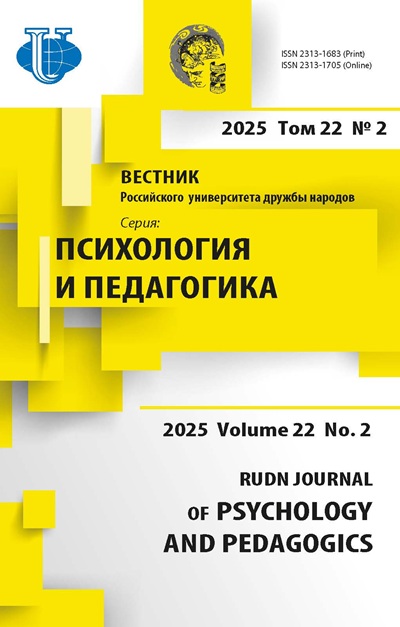Роль субъективного благополучия в межкультурной адаптации
- Авторы: Чеботарёва Е.Ю.1
-
Учреждения:
- Российский университет дружбы народов
- Выпуск: № 2 (2014)
- Страницы: 13-17
- Раздел: Статьи
- URL: https://journals.rudn.ru/psychology-pedagogics/article/view/8085
- ID: 8085
Цитировать
Полный текст
Аннотация
В статье представлены результаты изучения связей субъективного благополучия с такими факторами межкультурной коммуникации, как этническая идентичность и коммуникативная толерантность, а также с некоторыми личностными чертами. Основную положительную роль в межкультурной коммуникации играет удовлетворенность людей получаемой ими социальной поддержкой, которая находится в обратной связи с проявлениями экстремистских форм этноидентичности и многих проявлений нетолерантности. Напротив, удовлетворенность повседневной деятельностью, позитивная самооценка здоровья и стабильность настроения прямо связаны с некоторыми формами нетерпимости.
Об авторах
Елена Юрьевна Чеботарёва
Российский университет дружбы народов
Email: chebotarevy@yandex.ru
Кафедра социальной и дифференциальной психологии
Список литературы
- Казаренков В.И., Казаренкова Т.Б. Развитие у студентов потребности в межкультурном взаимодействии // Вестник РУДН. Серия «Психология и педагогика». - 2010. - № 1. - С. 69-73.
- Кудинов С.И., Чжан Пэн Хао. Сравнительный анализ самореализации российских и иностранных студентов // Вестник РУДН. Серия «Психология и педагогика». - 2013. - № 1. - С. 12-18.
- Новикова И.А., Панчехина Н.Н. К проблеме соотношения личностных черт и этнических стереотипов студентов многонационального вуза // Вестник РУДН. Серия «Психология и педагогика». - 2012. - № 1. - С. 29-35.
- Chebotareva E.Ju. Intercultural Adaptation to Russia of Students from Asia, Africa, Latin America and the Middle East // Bulletin of Peoples' Friendship University. Series “Psychology and Pedagogy”. - 2011. - No 3. - Р. 11-16.
- Diener E. Subjective well-being // Psychological Bulletin. - 1984. - 95 (3). - Р. 542-575.
- Diener E., Suh E.M., Lucas R.E., Smith H.L. Subjective well-being: Three Decades of Progress // Psychological Bulletin. - 1999. - 125 (2). - Р. 276-302.
- Lykken D., Tellegen A. Happiness is a stochastic phenomenon // Psychological Science. - 1996. - № 7. - P. 186-189.
- Steel P., Schmidt J., Shultz J. Refining the relationship between personality and Subjective well-being // Psychological Bulletin. - 2008. - 134 (1). - Р. 138-161.
- Suh E.M., Koo J. Comparing subjective well-being across cultures and nations: the “what” and “why” questions // Eid M., Larsen R.J. The Science of Subjective Well-Being. - New York: Guildford Press, 2008. - P. 414-430.
Дополнительные файлы














